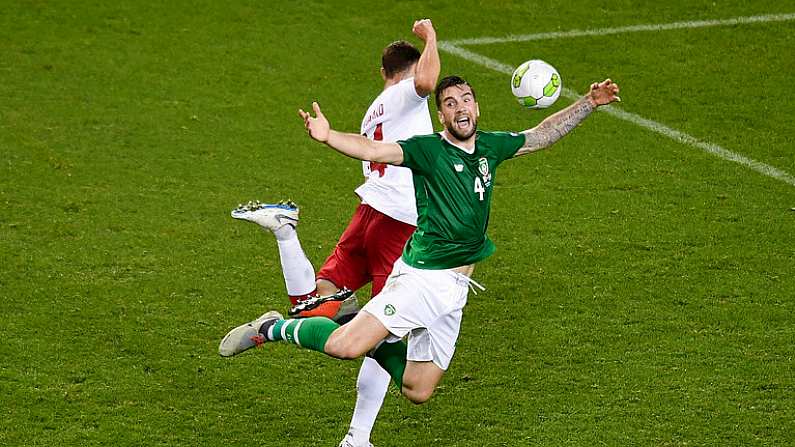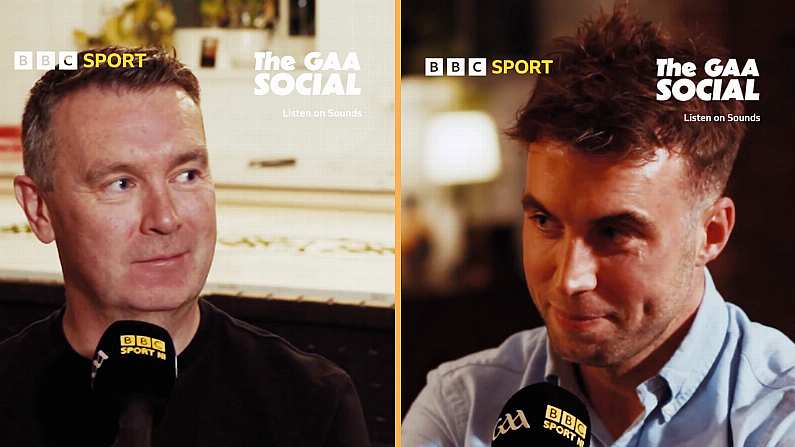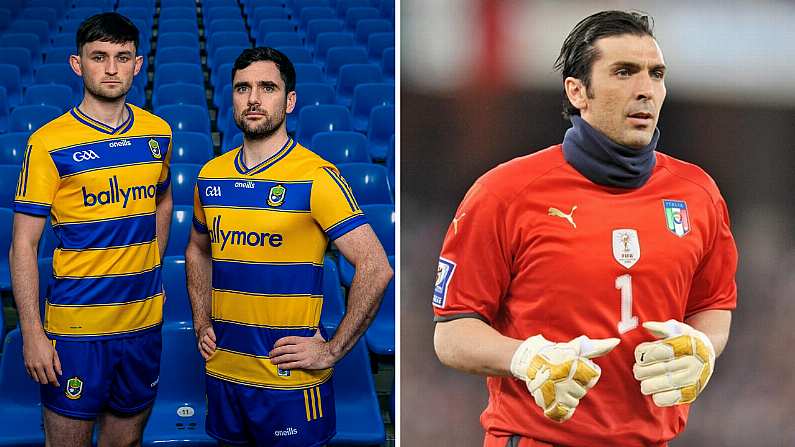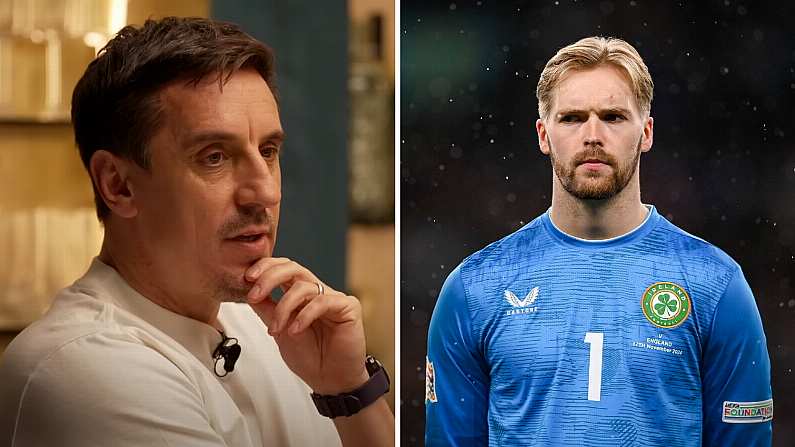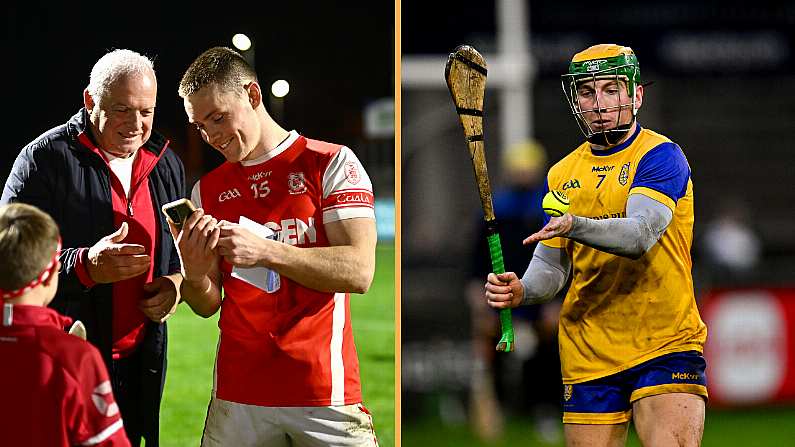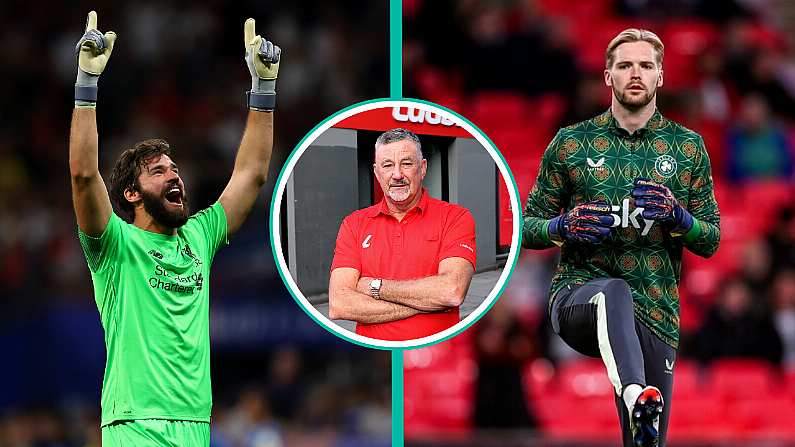by Gavin Cooney at the Aviva Stadium
The 5-1 defeat to Denmark less than a year ago lingers on as a kind of half-scrubbed Coppers stamp on our arm: an ungainly emblem of a night that began happily only to descend to a haze of regret, shame, and poor decisions.
Last night, the Danes returned to Dublin shorn of that night's protagonist but ultimately saved by his enduring scars.
Without Eriksen, Denmark were deeply, extravagantly average: attempts to exploit the aerial threat of Yussuf Poulsen and Kasper Dolberg had no effect, leaving their only other route to goal a couple of hopeful shots by their winger Pione Sisto, who is the nearest the Danes will ever come to understanding Aiden McGeady.
That Denmark were so blunt in attack only served to expose Ireland in a different way.
Martin O'Neill wore a contented look after the game, declaring that "we are rebuilding again after the game against Wales. We got a clean sheet tonight, which was very, very important".
It's a rebuilding process. We've kept a clean sheet, so that's good. It's [about laying] some building blocks, as some might say. I don't really remember Denmark, who were beaten at the World Cup by the finalist on penalties, causing us too many problems.
Given that Ireland have conceded nine goals in their last two competitive games, the addition of solidity was necessary.
The manager picked a team to do that: a 3-5-2 that looked closer to a 5-3-1-1 without the ball; featuring five defenders, three midfielders and one of Ireland's main goal threats - James McClean - operating as a left-back when out of possession. In a nice bit of nominative foreshadowing for the attacking plan, two of the starting players were called 'Long'.
Ireland defended deeply but effectively, with Denmark's only true chance coming from a corner: Simon Kjaer's header was hacked from the line by Harry Arter.
Darren Randolph was otherwise untroubled, but as to which team owned the better half of responsibility for that is unclear.
To whom Ireland owed their miserable attack to, however, is not in doubt.
Martin O'Neill began the week bemoaning the absence of Robbie Keane and the lack of a prolific goalscorer in his squad, but that obscures the problem. Ireland are not creating chances for forwards to miss.
In six games in 2018 thus far, Ireland have mustered 12 shots on target. If you take out those that didn't come against a weakened United States team in an end-of-season friendly, that figure falls to seven. The sole shot on target tonight came from Cyrus Christie, outside of the penalty area. Genuine goalscoring chances are becoming an extravagance in Irish football.
It is little surprise that Shane Long hasn't scored for Ireland in more than two years - he spent most of tonight's game looking at Darren Randolph and didn't have a shot at all.
O'Neill bristled when asked if the attitude going into the game was to revert to basics in light of past hammerings, replying "No, absolutely not. Our attitude was to try to win the game. We almost did toward the end".
That is an optimistic interpretation of a long-range shot from a full-back playing out of position in midfield. O'Neill did take pride in Denmark's subbing of striker Kasper Dolberg for centre-half Andreas Christensen, but this was the act of a manager in a commanding position in the group settling for a point away from home in the absence of his only world-class player.
Ireland showed little inclination to win this game until the final 20 minutes or so, and even then they failed to create a clear-cut chance.
Tonight's clean sheet will be sold as the first tentative steps back on the road for this Irish team, proof that the management team and a fusion of the old guard with some new faces have the wherewithal to fix the problems so ruthlessly exposed by Wales and Eriksen in the last couple of competitive games.
And while the goals against column looks healthier, it isn't true to say that the problems have been fixed. The failures in Cardiff and in the World Cup playoff were not defensive issues: they were attacking problems. In both games Ireland conceded sloppily but then panicked when chasing games, and with no attacking plan or trusted patterns to trust, ended up exposing themselves and conceded the soft goals O'Neill set up tonight to avoid.
Take the second goal against Denmark: Stephen Ward got caught in possession on the left-wing when faced with the necessity to do something other than knock it into the channel, and with Ireland caught ahead of the ball, Eriksen scored.
Wales' second goal last month came from a reckless Jeff Hendrick pass out wide, which caught out all but three Irish defenders ahead of the ball.
The third Welsh goal, in which Ethan Ampadu dispossessed a Jon Walters bereft of passing options, caught all but our centre-halves ahead of the ball.
In a problem pre-dating the current manager, Ireland have never developed a consistent plan of attack beyond giving the ball to Wes Hoolahan. That was at the heart of O'Neill's ruinous half-time double-substitution in the World Cup play-off.
We have seen that O'Neill's Ireland can trust themselves without the ball, but they are far more skittish when they have the ball. Inevitably this leads to panic, and the concession of the goals that blemished the last two competitive matches.
It has been borne out since O'Neill took charge: the United States game was the first in which Ireland came from behind to win under O'Neill, and only twice have Ireland avoided defeat in a competitive game when falling behind in the first-half.
Tonight, while the defence looked more assured, the only variation in Ireland's attacking style was when the ball hit Shane Long's midriff rather than his head.
Ireland will improve when Coleman and Brady return, and it may be a reality that we don't have the attacking threat to trouble most teams, but attacking patterns and clear plans can be taught to even the most average of teams.
It may be true to say that Ireland and Martin O'Neill are rebuilding but to where? To the same level that was ultimately, brutally exposed by Christian Eriksen and Gareth Bale?
Tonight showcased a side inhibited by the lingering effects of past tortures without confronting and addressing their root cause.
To misquote a Dane: there are more things on heaven and earth than are dreamed of in the philosophy of being 'Hard to Beat'.
See Also:Irish Player Ratings: Doherty Disappoints In Dreary Danish Draw

